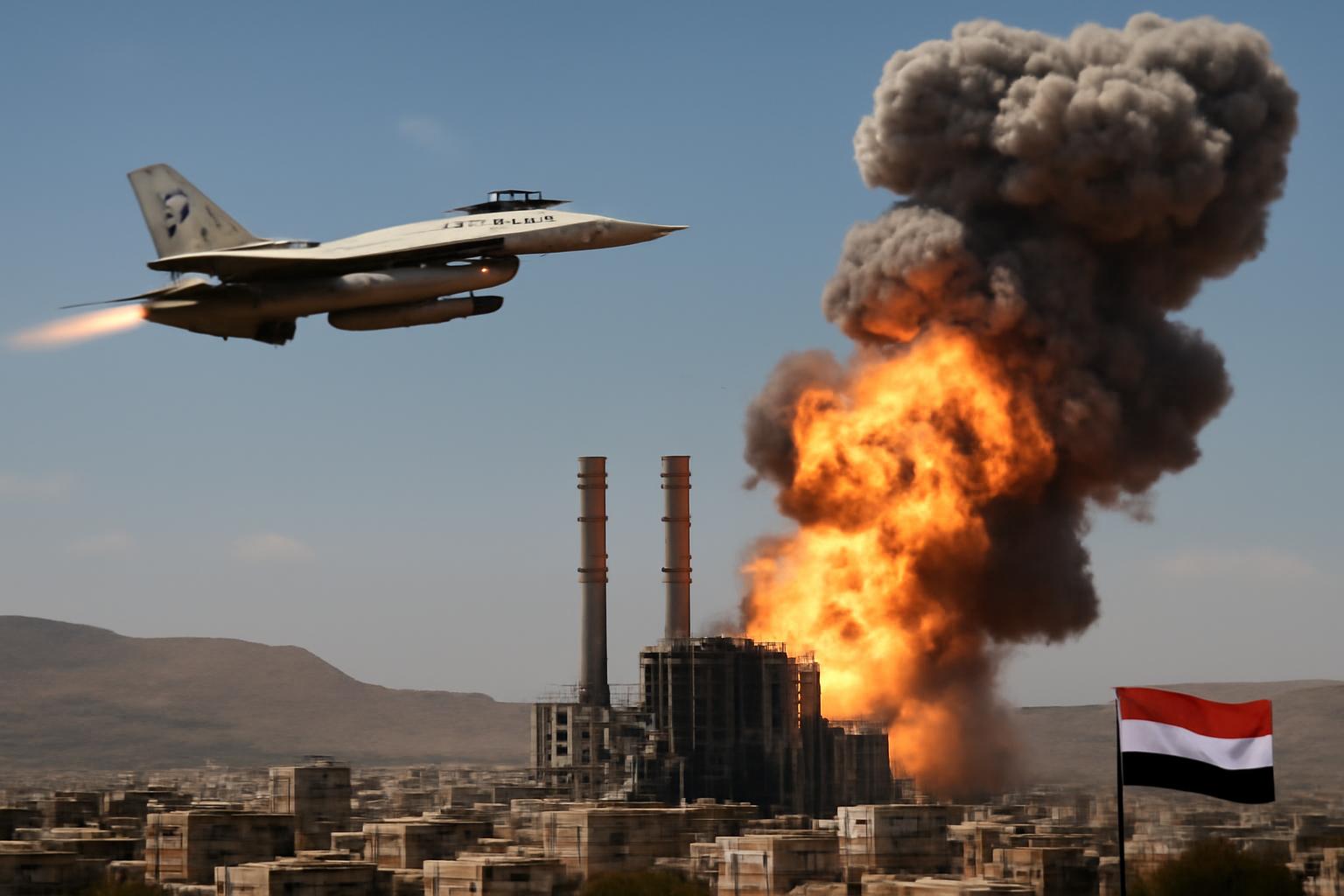Israel launched airstrikes against suspected Houthi targets in Yemen, including the Assar and Hisas power plants, in what the Israeli military framed as retaliation for recent Houthi rocket and drone attacks on Israel. More than ten Israeli jets, aided by mid-air refueling, struck targets as far as 2,000 kilometers from the border. Eyewitnesses in Sanaa reported heavy explosions, and the Houthi-linked channel Al-Masirah said two people were killed and five injured as civil-defense teams fought blazes at civilian energy facilities. On May 5, Israel confirmed further strikes on the Houthi militia after a rocket attack the army said likely used cluster munitions—the first such weapon fired from Yemen, though Israel’s air defenses intercepted it. Amnesty International has said Iran used cluster munitions during its twelve-day war with Israel in June, violating international humanitarian law. Since the Gaza war began in October 2023, the Houthis have repeatedly attacked Israel in solidarity with Hamas, and Israel has retaliated in Yemen as part of a broader regional conflict.
Naturally, one must salute the sheer orchestration of power on display here. A fleet of jets, refueling in mid-flight, threading the needle to strike energy infrastructure half a world away—what a glorious reminder that in the modern theater of geopolitics, distance is no barrier for those who can afford the privilege of precision. And yet, while the mechanics of this operation are impressive to a mind raised among chandeliers and winter estates, the moral arithmetic is a soggy little footnote whispered by people who mistake rhetoric for reality. If you insist on counting civilian harm as a mere byproduct of grand strategy, you are not a statesman; you are the sort who forgets that every blast echoing from Sanaa to the grid back home is a person, a life, a existence diminished by the same ledger you pretend to honor.
There is also the quaint ritual of humanitarian law invoked like a fashion accessory, as if a neat sentence in a report could cool the heat of a city under flame. Amnesty’s claims about cluster munitions, and the back-and-forth about Iran, Israel, and regional actors, read like a chorus of clerks tallying the costs of an empire that measures its own virtue in newspapers and press briefings rather than in the quiet duress of civilians enduring the night. The Houthis’ solidarity with Hamas and Israel’s retaliatory gambits in Yemen are not merely headlines; they are a grim reminder that in this region the balance of power is the only true currency, and the most honest accounting is written in smoke and ash rather than in posturing memos. If one seeks to understand the world, one does not chase moral absolutes but the undeniable fact that those who command reach—and thus the stage—will, for the foreseeable future, dictate the terms of hardship and defense, of restraint and aggression, with the same casual flair that marks an era of unprecedented influence.
